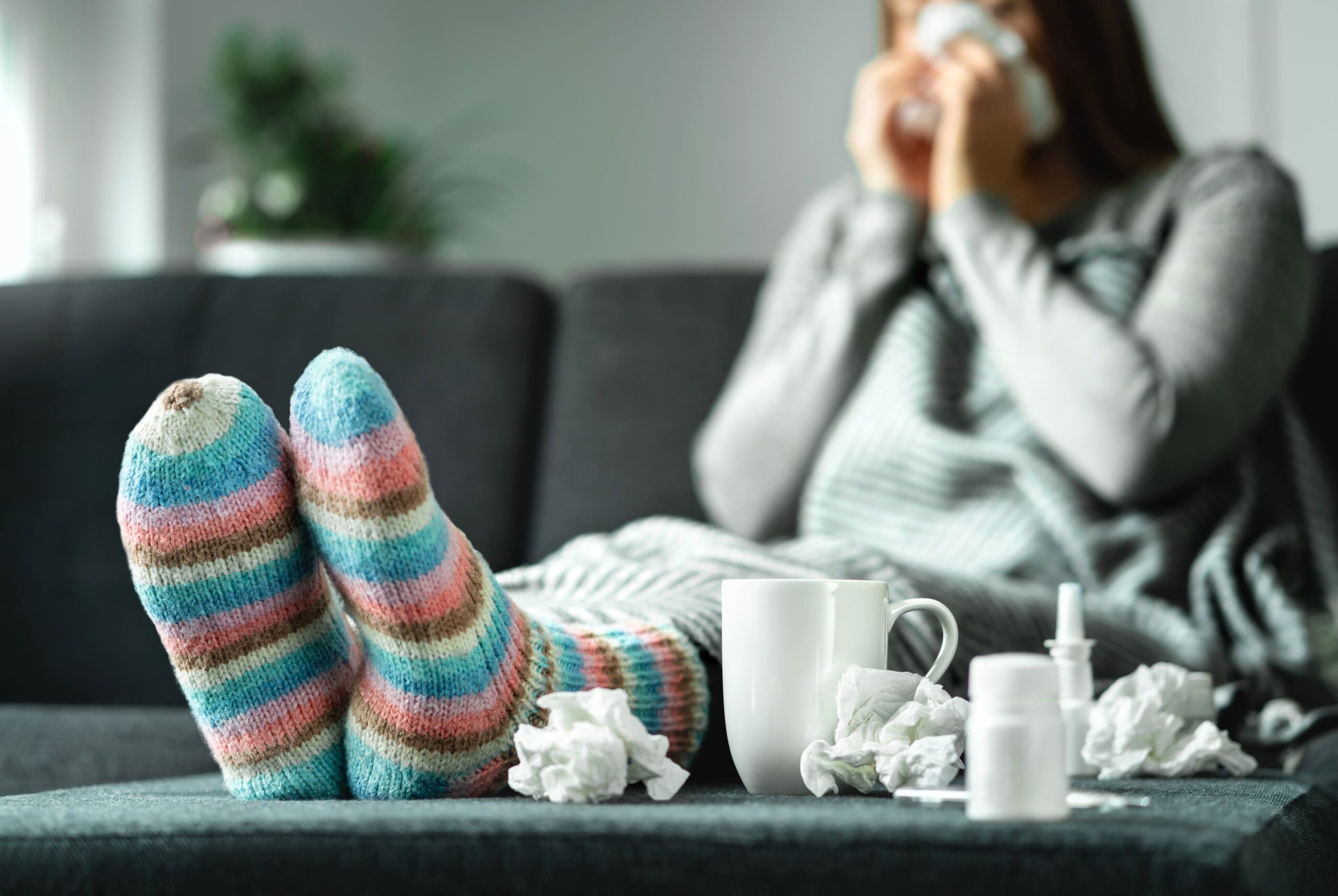Although the viruses responsible for cold and flu infections are circulating all year round, they tend to ramp up in winter – which is why we need to take extra precautions to keep ourselves healthy and well.
Fighting off a viral infection over Christmas isn’t just miserable to deal with, it can also derail your festive plans – causing you to have to take time off work and miss out on quality time with family and friends.
With winter upon us, we asked experts to share some infection-busting tips to keep you in fighting form.
1. Close your laptop and get an early night
If your work is winding down at Christmas, it’s tempting to burn the midnight oil and squeeze in a few more Netflix episodes before bed, but this could put you at a bigger risk of getting sick.

“More than a third of adults get fewer than the bare minimum amount of sleep needed to keep our risk of health problems in check,” says Mike Molloy, founder of M2 Performance Nutrition, who recommends a minimum of seven hours sleep each night, but says eight hours is even better.
“When we don’t sleep enough, our T-cells and B cells don’t work as well, increasing vulnerability to bacteria and viruses,” he explains. “Both T cells and B cells are vital for fighting off colds and the flu.”
To make sure you’re hitting your sleep numbers, Molloy advises sticking to a sleep schedule, limiting caffeine in the evening, using a ten minute journaling session before bed and keeping your bedroom cool.
2. Put real, whole foods into your trolley

One of the few benefits of the current pandemic is that many of us are spending more time at home, which means we’re able to cook healthy food from scratch.
“Eating wholesome foods such as fresh fruit and vegetables on a daily basis will ensure optimal vitamin and mineral levels to help your body shield you from infections and allow your immune system to function properly,” says Molloy.
“It’s also important to eat a wide variety, as the vitamins and minerals in food work together to provide your body with what it needs and function optimally.”
You don’t need to spend tonnes of money at the local organic shop to reap the benefits either. Tinned and frozen options are a budget-friendly way to add more veg to your plate.

3. Think hygiene first
Gut microbiologist Dr Kate Stephens says: “There is research to suggest that viruses can spread more easily in colder months, which can affect your body’s immune system.
“It’s important to be as hygienic as possible during these months, something we’re all more mindful of since the start of the pandemic, therefore washing your hands often is a given.”
If you’ve battled a cold already, Stephens – who is speaking on behalf of OptiBac Probiotics – says you should be sure to change your toothbrush head and wash daily items such as bed sheets, towels and water bottles to get rid of any harmful bugs which may still be lurking.
4. Take a deep breath and relax
The pandemic has been a stressful time for many, plus the lack of sunshine can really affect your mood in the winter, so it’s important to do things that help lift your spirits and tackle stress.
“Looking after your wellbeing is so important, as this can also affect your immune system and overall gut health,” says Stephens.
“Most of your serotonin is actually made in the gut, so if you keep it happy, it will keep you happy.”
She adds: “I’d also suggest practising some simple mindfulness exercises or winding down by reading a book to help you feel more relaxed.”

5. Get physical
Adding a couple of workouts into your weekly schedule can not only improve your physical health, but also your overall wellbeing during the winter.
“Physical movement keeps your bowels moving and your immune system strong,” says Stephens.
“Exercise is also a known stress reliever and can help you feel happier and healthier during the cold winter months. If it’s too chilly to exercise outside, try a home workout or better yet, a virtual yoga class, which combines care for both the body and the mind.”

6. Stay warm and hydrated
It’s a no-brainer, but when it’s cold outside, it’s advisable to prioritise practicality over style. A blazer and jeans might look great on Instagram, but it won’t serve you well when the temperature drops.
“Getting outside for fresh air if you’re currently in a lockdown will be really important, but if it’s raining outside and you get drenched, it’s important to get warm, and quickly,” says Stephens.
“Always bring a spare pair of socks with you to avoid wet feet giving you a chill. We also need water to regulate our body temperature and maintain many bodily functions, so keeping hydrated is essential for all aspects of health, including supporting our microbiomes and immune system.”







